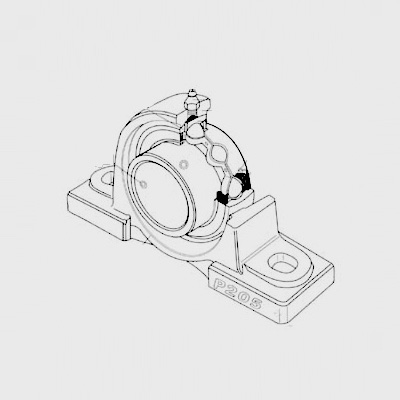
Jul . 27, 2024 08:13 Back to list
High-Precision Machine Tool Bearings for Enhanced Performance and Reliability in Manufacturing Industries
Precision Machine Tool Bearings An Overview
Precision machine tool bearings are crucial components in the realm of modern manufacturing and engineering. As industries push for higher efficiency, reduced tolerances, and enhanced performance, the importance of these bearings continues to grow. They serve as the backbone of various machining processes, ensuring smooth operation, accuracy, and longevity of machinery.
Understanding Precision Bearings
Precision bearings are designed to support both radial and axial loads with minimal friction. Their primary function is to facilitate the rotation or movement of machine parts with exacting precision. The key characteristics that define precision bearings include tolerance, material, design, and lubrication. Tolerances in precision bearings are incredibly tight, often falling within a few micrometers, allowing for enhanced performance in high-speed applications.
Types of Precision Bearings
There are various types of precision machine tool bearings, each engineered for specific applications. The most common types include
1. Angular Contact Bearings These bearings can withstand both axial and radial loads and are often used in pairs to handle significant forces. They are ideal for applications requiring high rotational speed and precision.
2. Deep Groove Ball Bearings Known for their versatility, these bearings can support radial and moderate axial loads. They are commonly used in various machinery and equipment due to their ability to perform well under diverse conditions.
3. Tapered Roller Bearings These bearings are capable of carrying heavy loads due to their conical shape, which allows them to accommodate both radial and axial forces. They are widely used in heavy machinery and automotive applications.
precision machine tool bearings

4. Linear Bearings Designed for linear motion applications, these bearings facilitate smooth and precise movement along a straight path, making them crucial in automation and CNC machinery.
Material and Manufacturing
The materials used in the production of precision bearings are essential for their performance. High-quality steel, such as chromium steel, is often the material of choice due to its ability to withstand high loads and resist wear. Ceramic materials are also gaining popularity due to their lightweight, corrosion resistance, and low friction characteristics. The manufacturing process itself is finely tuned; precision machining techniques such as surface grinding and heat treatment play significant roles in enhancing bearing performance and lifespan.
Lubrication Importance
Lubrication is vital for the longevity and performance of precision machine tool bearings. Proper lubrication reduces friction, minimizes wear, and helps dissipate heat generated during operation. Depending on the application, lubrication can be achieved through oil or grease. Advanced technologies, such as solid lubrication or self-lubricating bearings, are also emerging in the market to meet the demands of challenging operating environments.
Future Trends
The future of precision machine tool bearings is closely linked with advancements in technology. As industries embrace automation and Industry 4.0, the demand for even higher precision and specialized solutions will grow. Innovations such as smart bearings with integrated sensors for condition monitoring are on the rise, providing real-time data on performance and wear. This shift towards predictive maintenance can drastically improve operational efficiency and reduce downtime.
Conclusion
In conclusion, precision machine tool bearings are indispensable in today’s manufacturing landscape. Their design, material, and lubrication are critical to achieving the precision and efficiency that modern industries require. As technological advancements continue to evolve, these bearings will play a pivotal role in shaping the future of precision engineering, enabling machines to perform at their best in an increasingly competitive world.
Latest news
-
Common Failures in Thrust Ball Bearings and Solutions
NewsAug.22,2025
-
How Tapered Roller Bearings Can Take Shock Loads
NewsAug.22,2025
-
Angular Bearings in High-Precision Spindles
NewsAug.22,2025
-
The Impact of Misalignment on Cylindrical Roller Bearing Performance
NewsAug.22,2025
-
The Role of Cage Design in Deep Groove Ball Bearing Durability
NewsAug.22,2025
-
The Impact of Material Quality on Machinery Bearings’ Lifespan
NewsAug.22,2025
